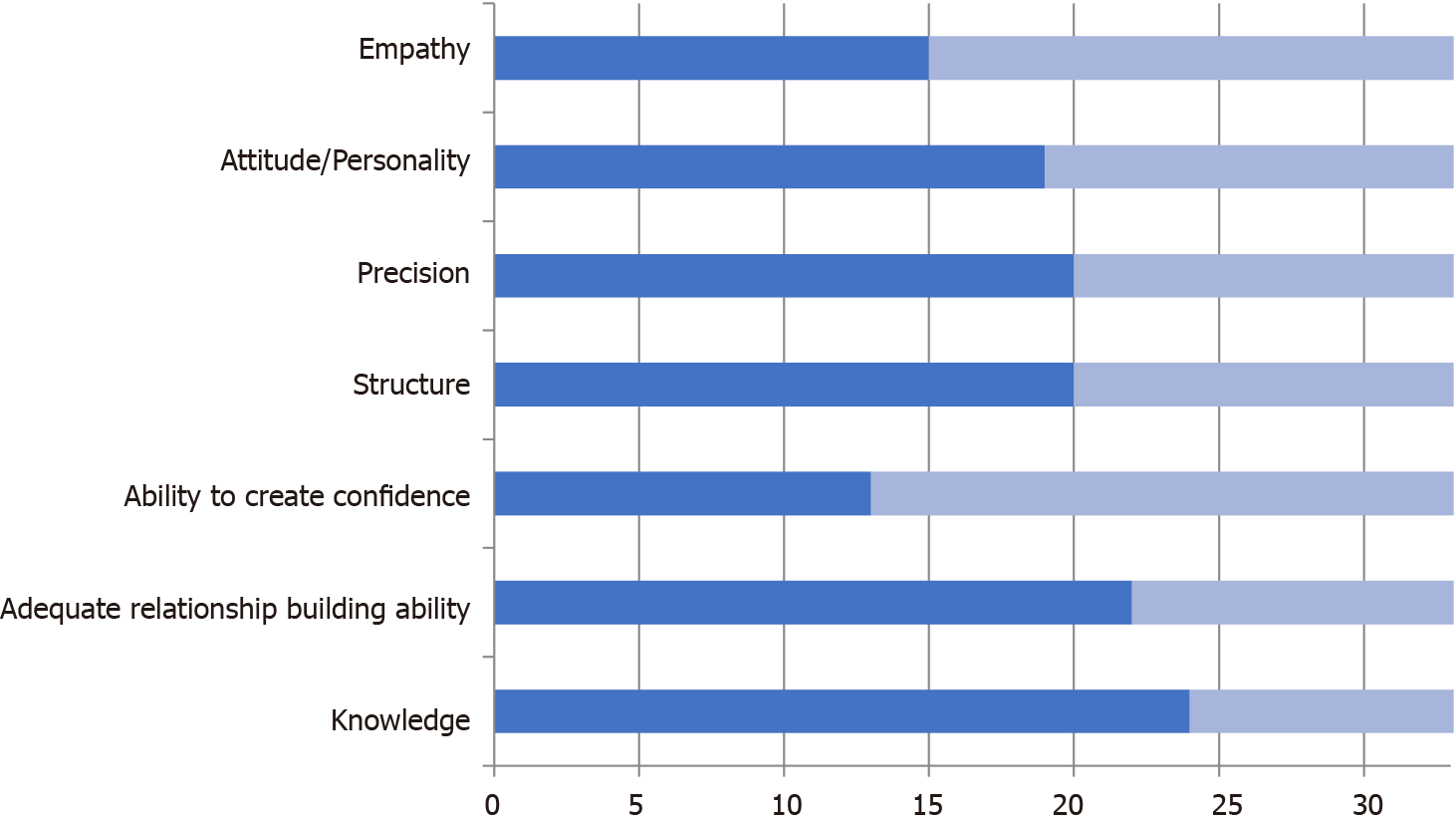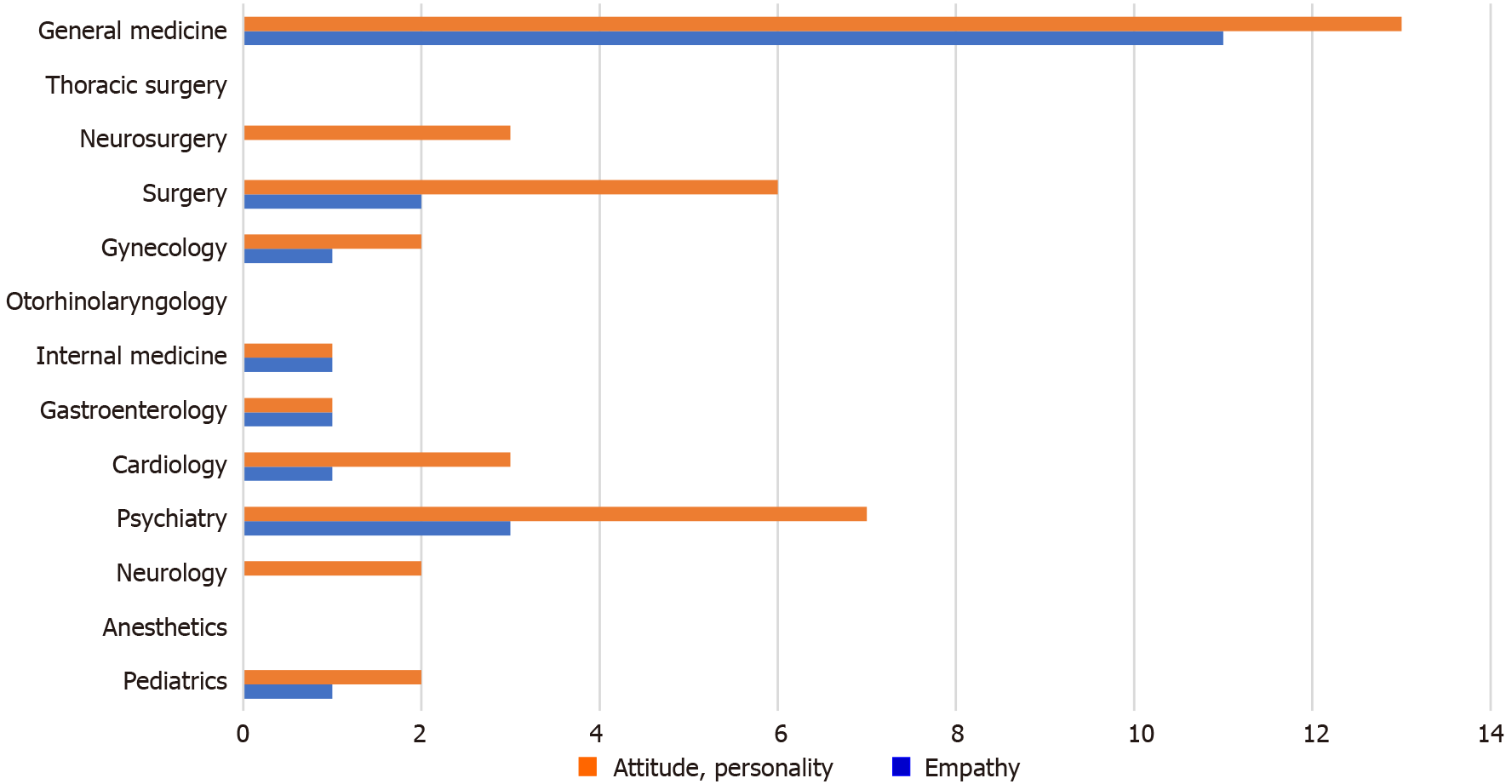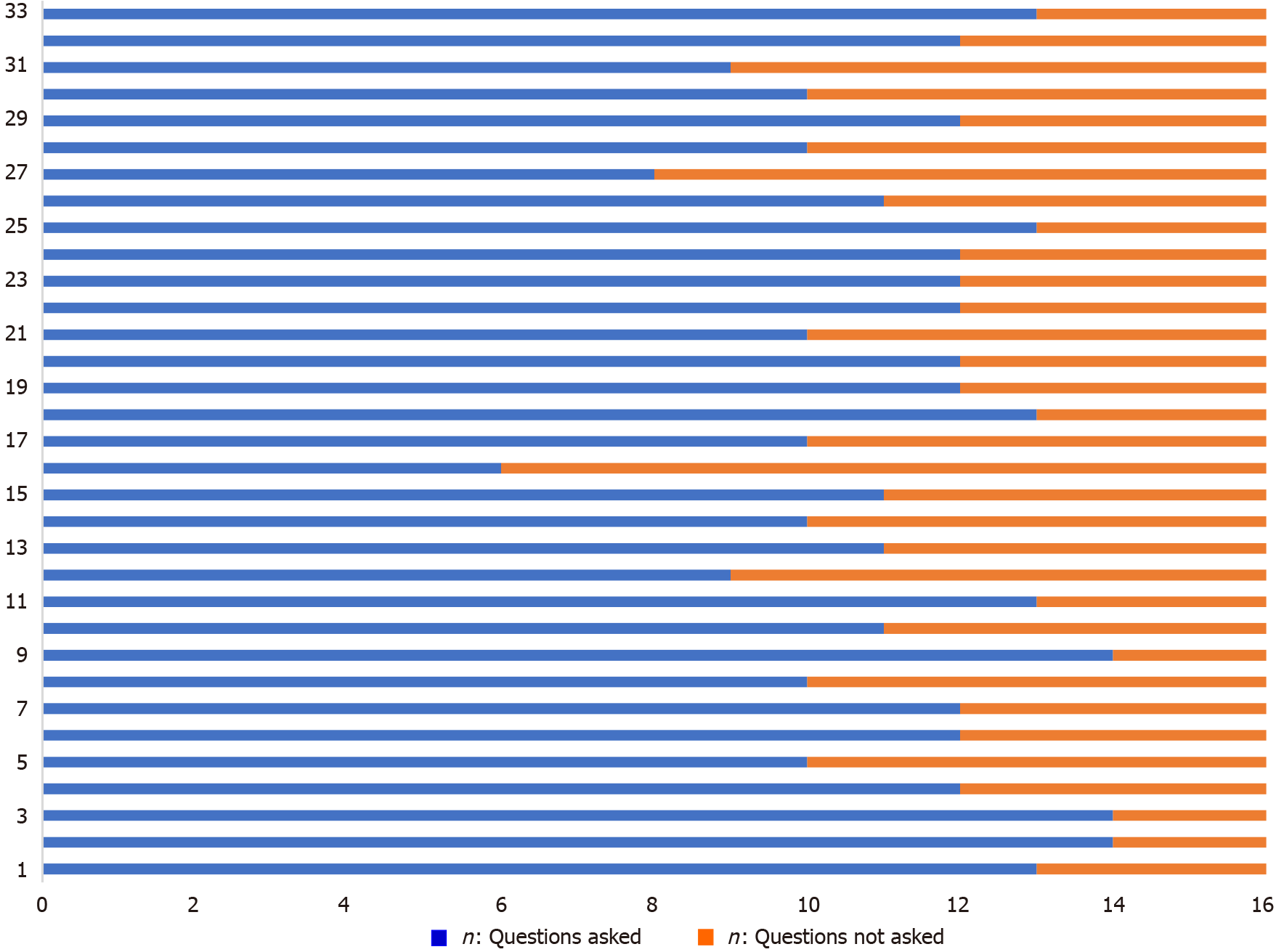Copyright
©The Author(s) 2022.
World J Psychiatry. Feb 19, 2022; 12(2): 323-337
Published online Feb 19, 2022. doi: 10.5498/wjp.v12.i2.323
Published online Feb 19, 2022. doi: 10.5498/wjp.v12.i2.323
Figure 1 Theoretical conception: Ingredients of the ideal medical history taking.
The figure shows theoretical conceptions about medical history taking only. The frequency with which a quote about a specific theme was identified in the qualitative analysis of the interviews is shown. Thus, multiple answers were possible for each participant.
Figure 2 Quotes about empathy and attitude.
Theoretical conceptualizations about necessary features required for a student’s medical history taking were discussed in this part of the interview. The figure shows the frequency of quotes about empathy and attitude, identified per specialization as taken from the content analysis. Multiple quotes per participant and theme were possible. As mentioned in the results section, “attitude” was mentioned in 22 interviews (8 females, 14 male), while empathy was mentioned in 11 (6 females, 5 males).
Figure 3 Questions asked per interview.
This figure shows the number of questions asked per interview, as discussed in the limitation section. Blue: Number of questions asked in interview 1-33. Number of available questions: 16. Number of interviews: 33.
- Citation: Steinmair D, Zervos K, Wong G, Löffler-Stastka H. Importance of communication in medical practice and medical education: An emphasis on empathy and attitudes and their possible influences. World J Psychiatry 2022; 12(2): 323-337
- URL: https://www.wjgnet.com/2220-3206/full/v12/i2/323.htm
- DOI: https://dx.doi.org/10.5498/wjp.v12.i2.323











